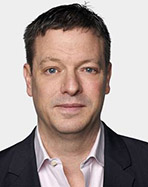European Russophobia and Europe’s Rejection of Peace: A Two-Century Failure
Europe has repeatedly rejected peace with Russia at moments when a negotiated settlement was available, and those rejections have proven profoundly self-defeating. Read more
 Doug Saunders
Doug Saunders
The Fort McMurray wildfire catastrophe is a singular tragedy in Canada, but its community-destroying plumes of smoke and flame are not the only sign that this year’s unusually strong El Nino Pacific current, and the resulting hot, dry weather, is spreading danger around the world. Nor are the equally serious wildfires currently sweeping across Siberia and eastern Russia.
As well as provoking natural disasters, the year-long global warm spell is proving to be a stress test on the world’s rural regions. Many are not passing the test. By giving much of the world a warmer-than-usual year, El Nino is showing us how ill-prepared parts of the world are for future warmer temperatures – and how tightly linked climate, food, poverty and economic development are.
Across eastern and southern Africa, where harvest season has just begun, the Pacific current is having devastating effects. An extraordinary drought in South Africa has all but wiped out the country’s corn crop. Ethiopia’s grain production has fallen by 75 per cent, leading the Agency for International Development to warn that 10 million people there “may be in food crisis” later this year; Malawi has already declared a food emergency; Zimbabwe will be spending $200-million on grain imports to cover lost harvests. In many of these countries, grain prices have more than doubled.
In India, where several states are hit with drought, the government has implemented emergency measures to sustain food supplies.
Thailand, Vietnam and India, together responsible for 60 per cent of the world’s rice supply, expect to see their inventories fall by a third – the biggest drop since 2003.
China has just announced a 9.9 million tonne gap between the grain it produces and consumes. Indonesia is struggling to recover from simultaneous droughts and wildfires, both symptoms of El Nino. And North Koreans have now been warned by the UN’s Food and Agriculture Organization that their already-low rice yields have fallen by 26 per cent.
An El Nino drought is not itself climate change (though this one is occurring in the midst of the warmest decade in recorded history). But it shows us what a warming climate will do to our livelihoods and economies, and where the most vulnerable people will be.
The article's full-text is available here.